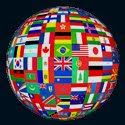This blog entry was submitted by Carolina M. Torres, the winner of our Best Practices contest. Please note, Caro is not a native English speaker and this was not a language competition. The contest was based solely on content quality.
In my country, Argentina, it is very difficult sometimes for translators to speak of Best Practices. Argentina is a “developing country” this means that the people suffer many necessities and sometimes because of necessities the people are forced to accept very low rates or to work with very difficult clients. It is hard for a translator from Argentina to build a large client base, because there are many translators in Argentina and many translators means much competition. But it is not impossible if you work hard to follow Best Practices and necessity is not an excuse to have Bad Practices.
I think if I have to describe my “best” practices, they are five:
1. Spanish is my native language. My English comprehension is very good, very strong. But I am a better writer in Spanish because it is my language. I do not translate into English. Some translators in my country don’t just translate into English -even though it is not their native language- but they also charge more for working into English. They think it is because the language is more difficult for them, I don’t agree with this practice. When I see texts translated into Spanish that were not translated by a native Spanish speaker, it is obvious to me. I think if I translate into English it is obvious to the person who is going to read my translation that English is not my native language. Spanish is, so it is not ethical for me to translate to another language that I don’t dominate like Spanish.
2. I don’t accept very low rates. It is hard for the people in developing countries to have access to clients who pay good rates, but it is not impossible. I am a professional translator. I studied very hard to become a translator and I think professionals should be paid professional rates, without mattering if they are in developed countries or developing ones.
3. I try to always deliver on time. Sometimes this is very difficult because translators usually have a lot of work. But it is not impossible to become organized and deliver on the time accorded with the client.
4. I take many courses and trainings. I did not finish learning translation when I finished studying translation at University. I continue to take courses about language, editing, grammar, CAT programs, and everything else that I can learn to improve.
5. I travel. I travel to England and the United States as much as possible because it is a good way for me to obtain more fluency and knowledge of my source language. This is very difficult for the people in Argentina because the “peso” is devaluated and traveling is very expensive for us. But every time I have the possibility to travel, I go. It is important for translators to know the source language very well to understand the translation better. But, it is also important for translators to know the culture very well. In language, not everything is grammar and syntaxes, culture and society influence on language. If you understand the culture and society of the source language, you can understand better the translation.
These are what I consider my Best Practices. I think there are many more practices that I could share and describe, but I believe respecting language is fundamental for being a good translator and all of these practices are based on respecting language and clients. I entered this group because I want to continue to learn from other translators. I entered this contest because I believe that if we exchange our ideas, it is the best way to learn.
If you would like to know more about Caro, she accepts new friends on Facebook and welcomes emails to the address shown on her Facebook badge.
Caro Torres | Create Your Badge

+Dark+Backd.jpg)